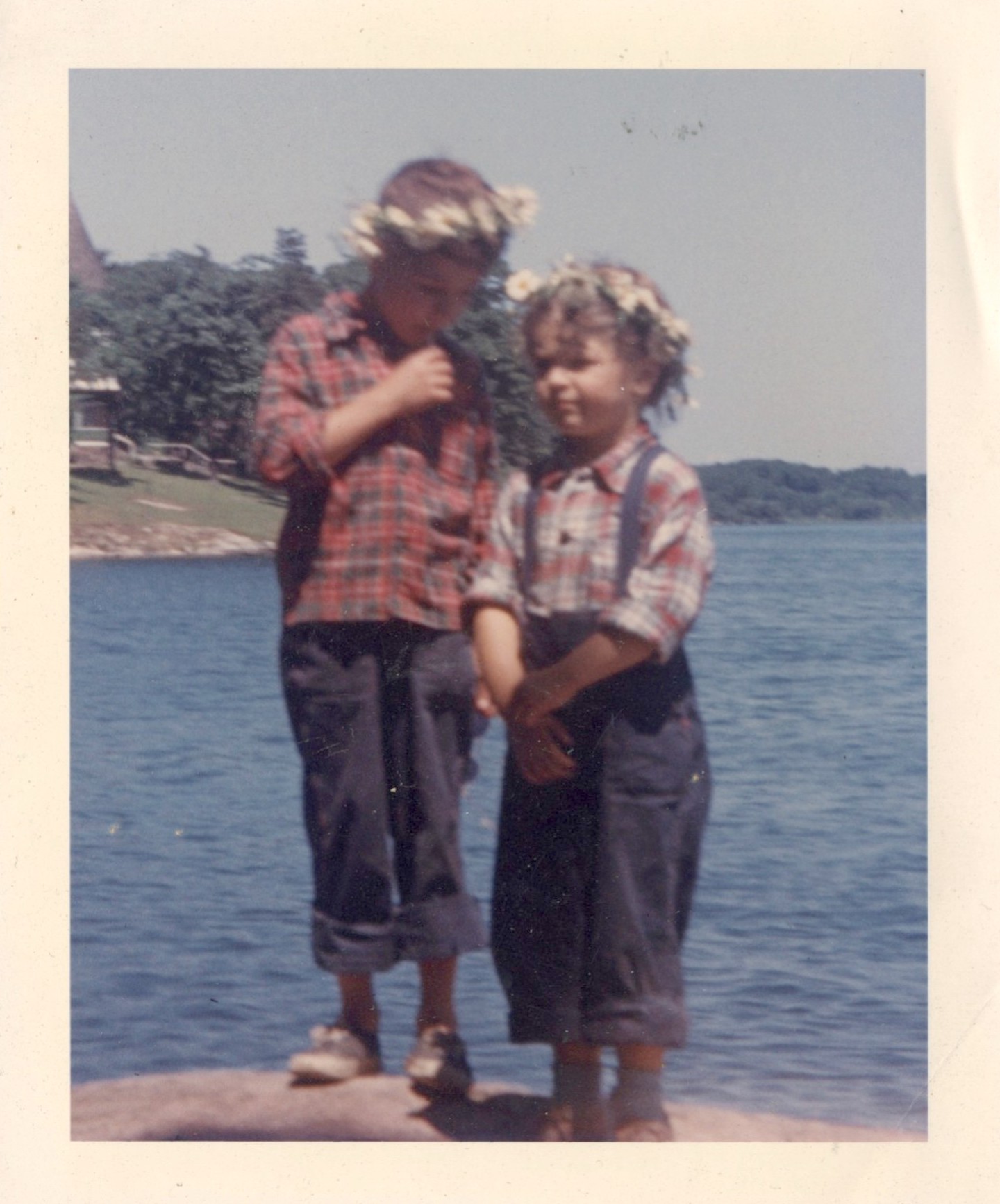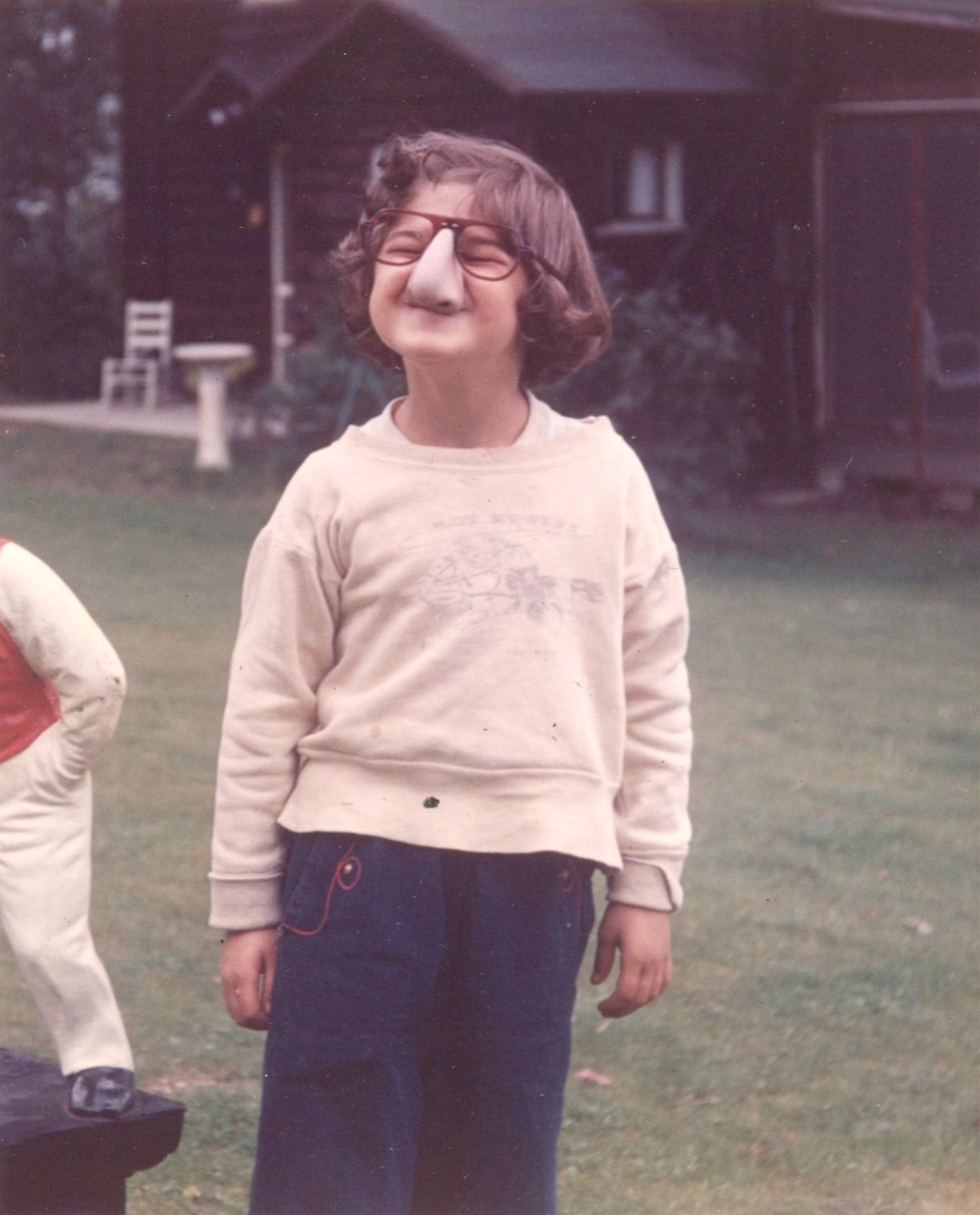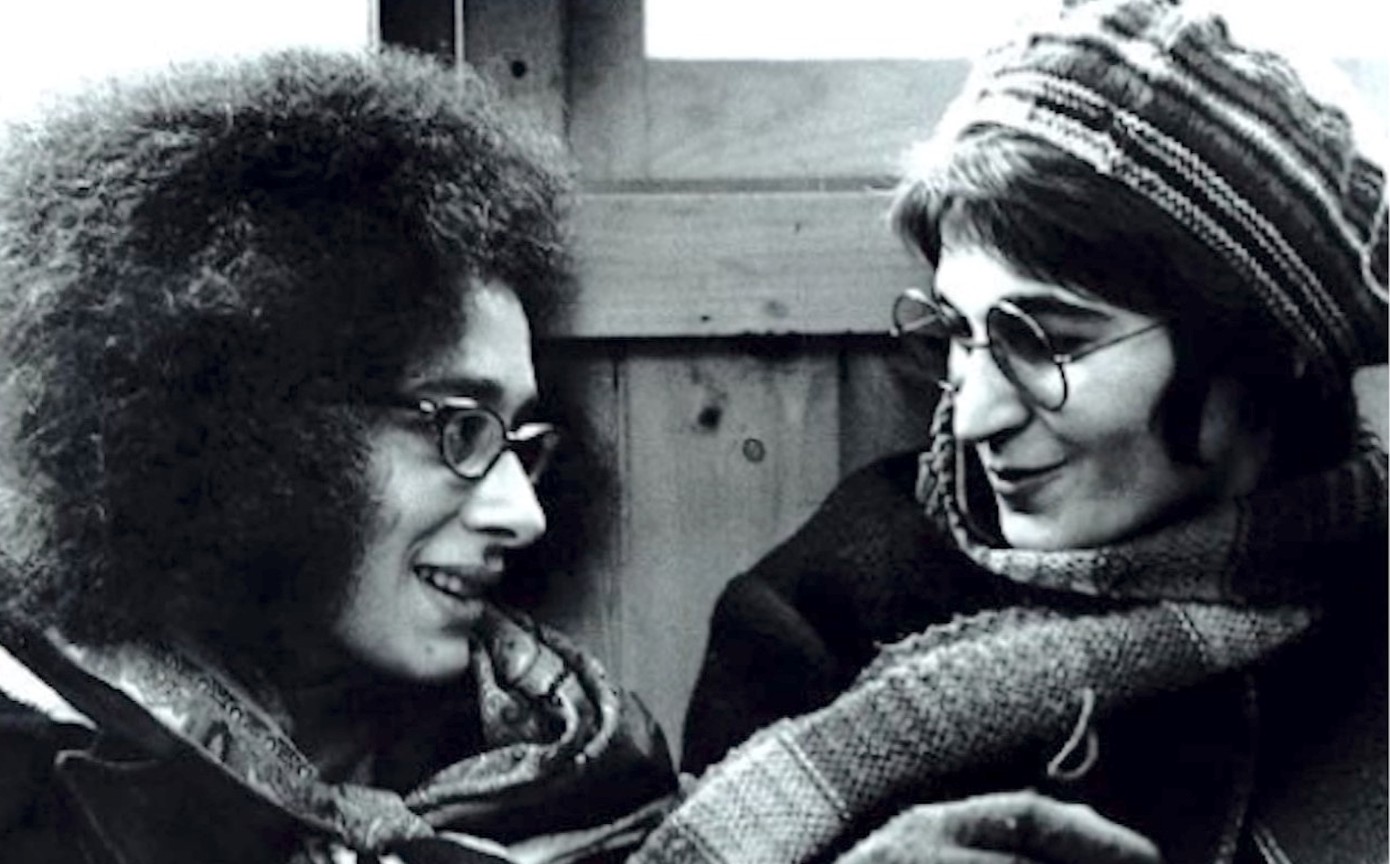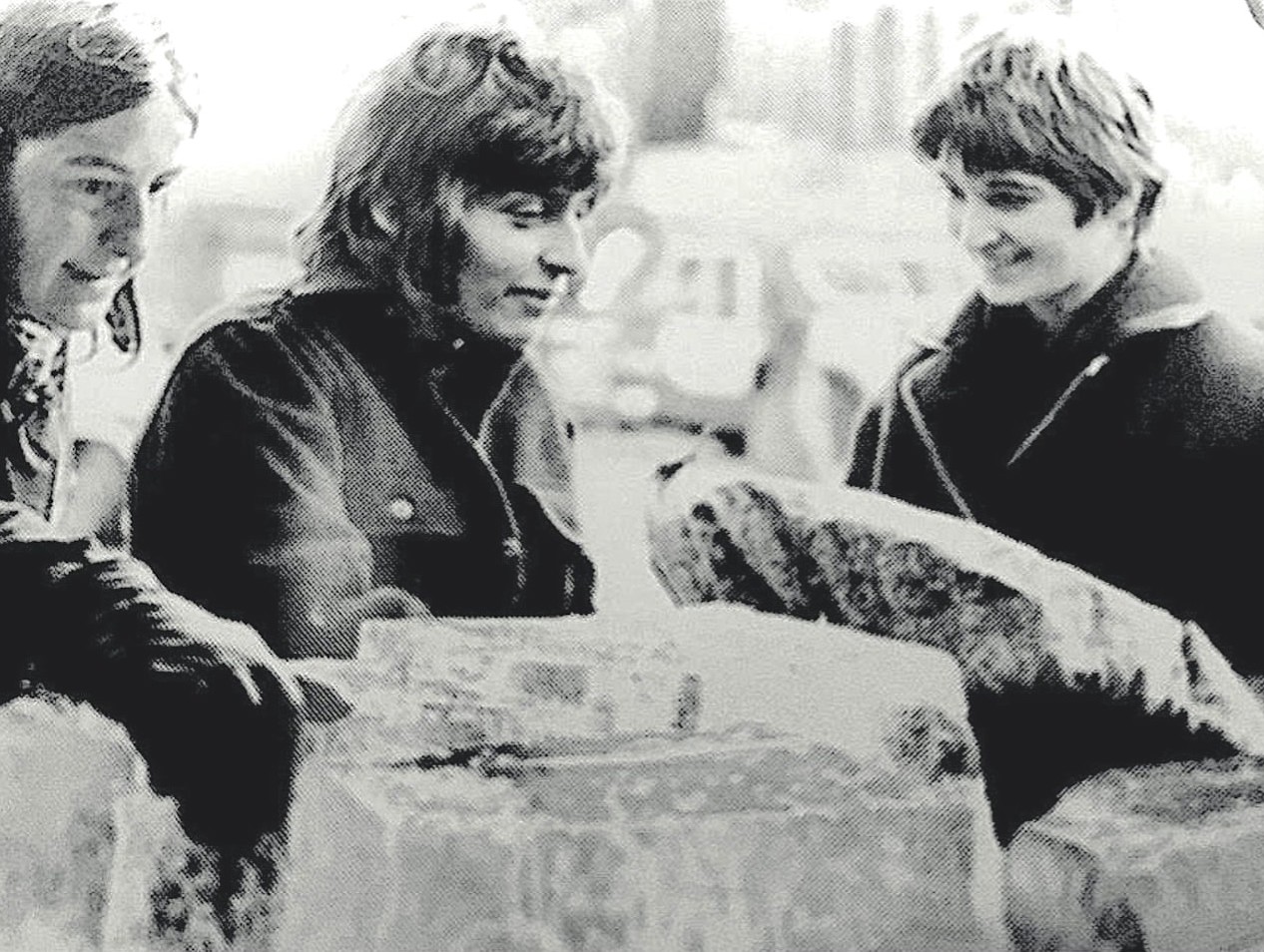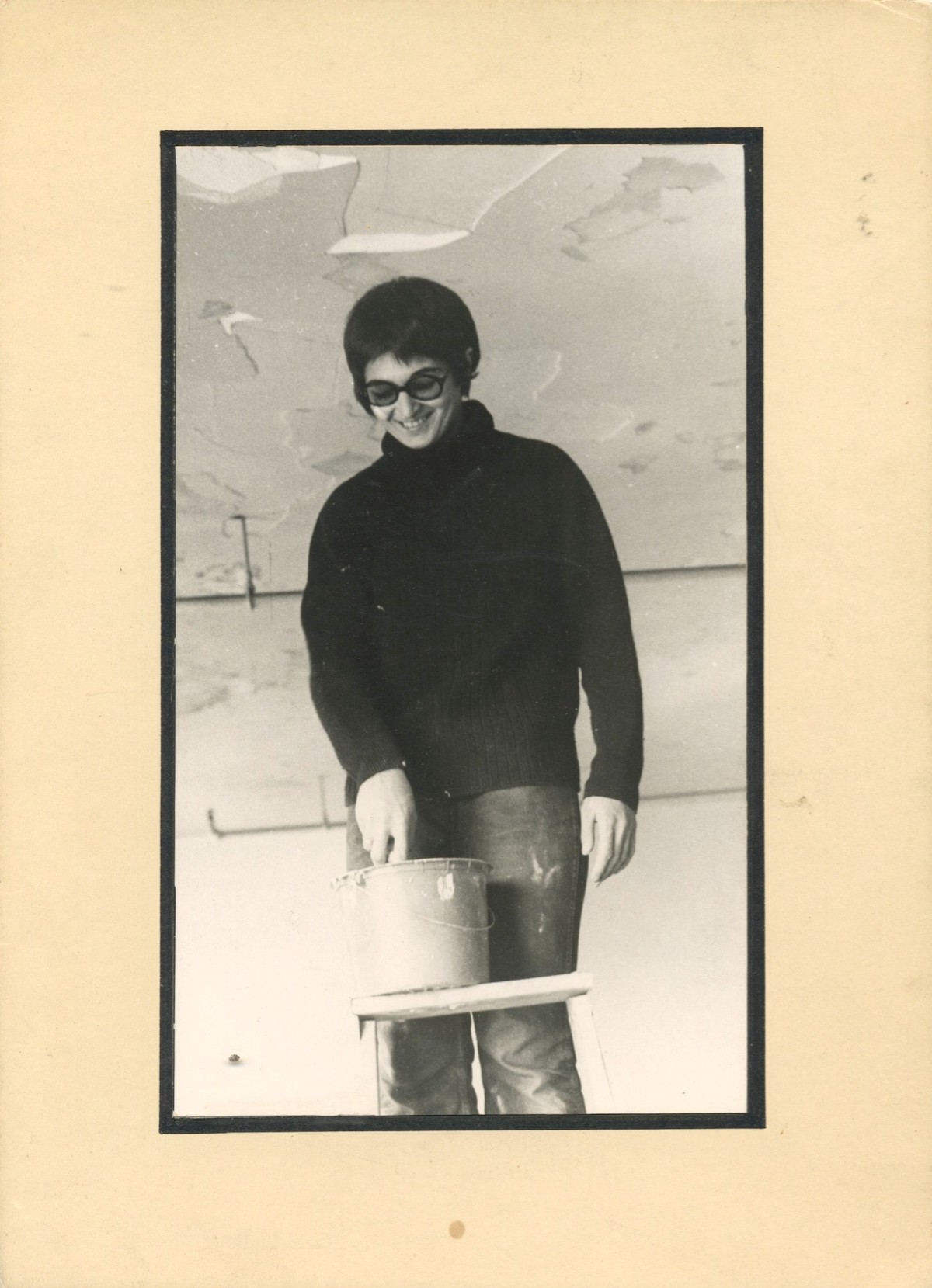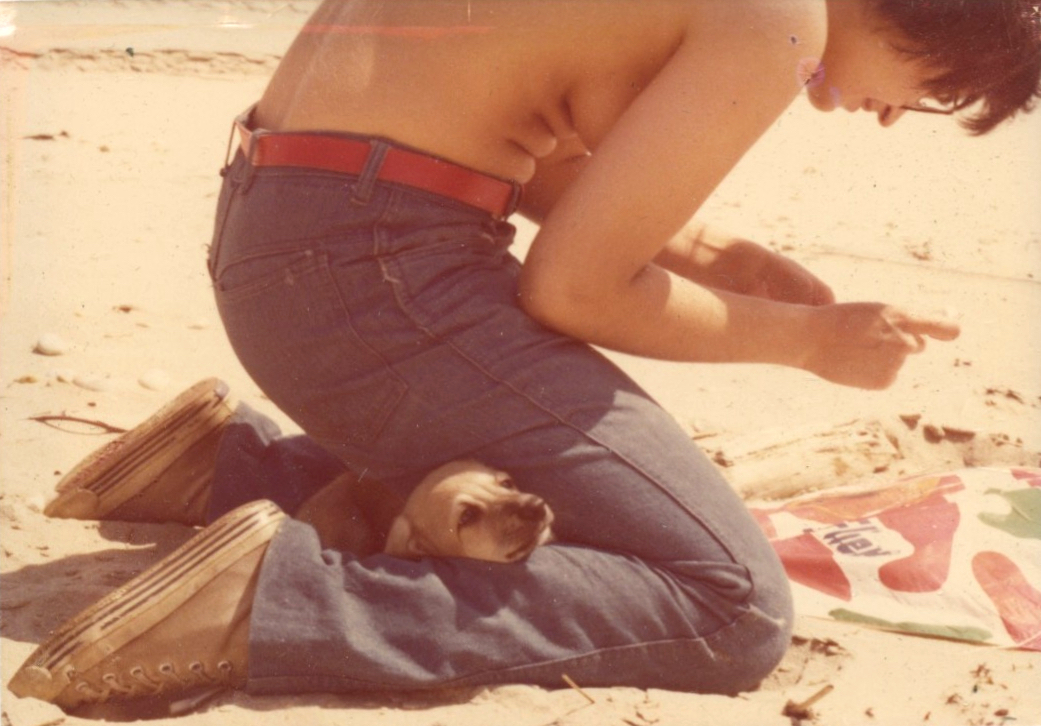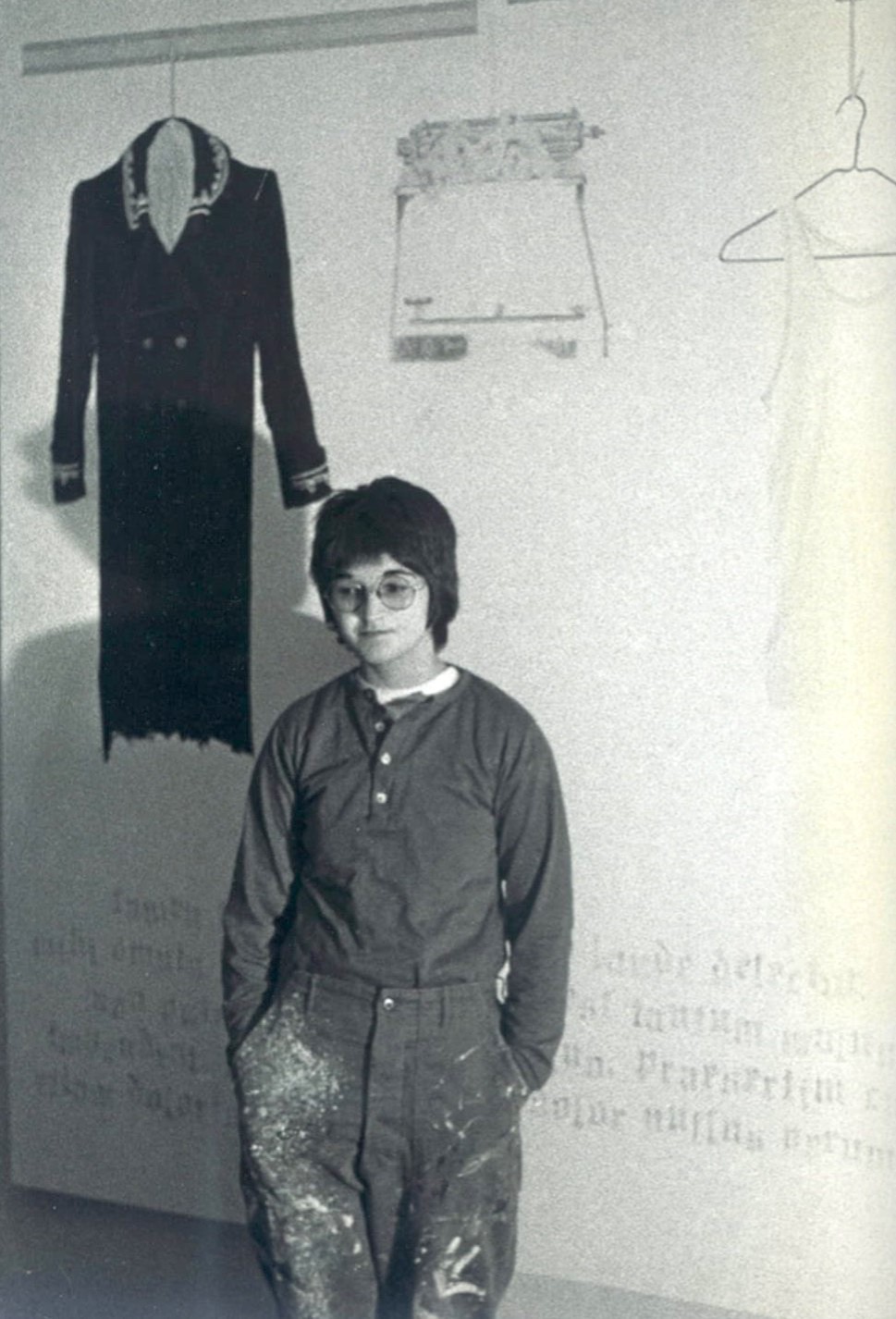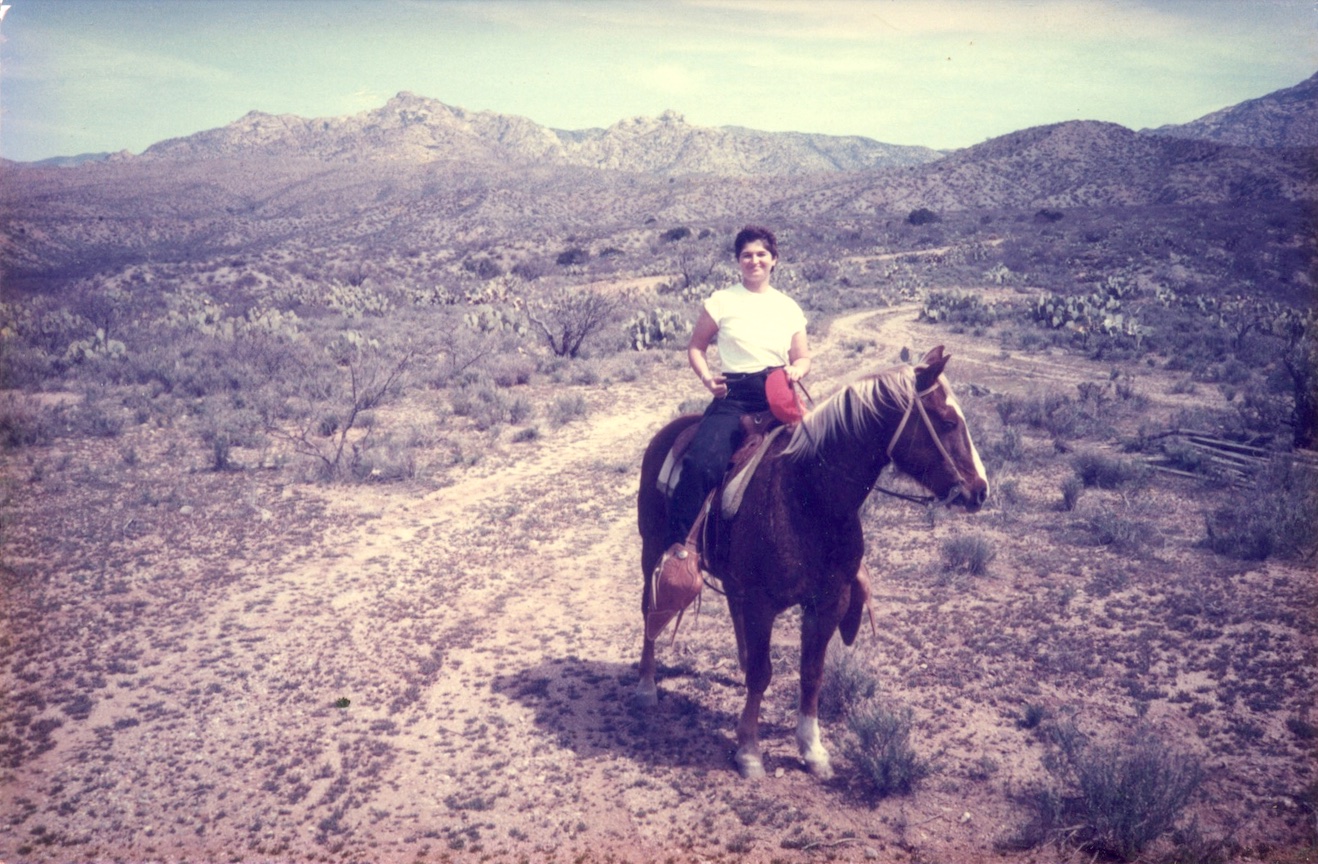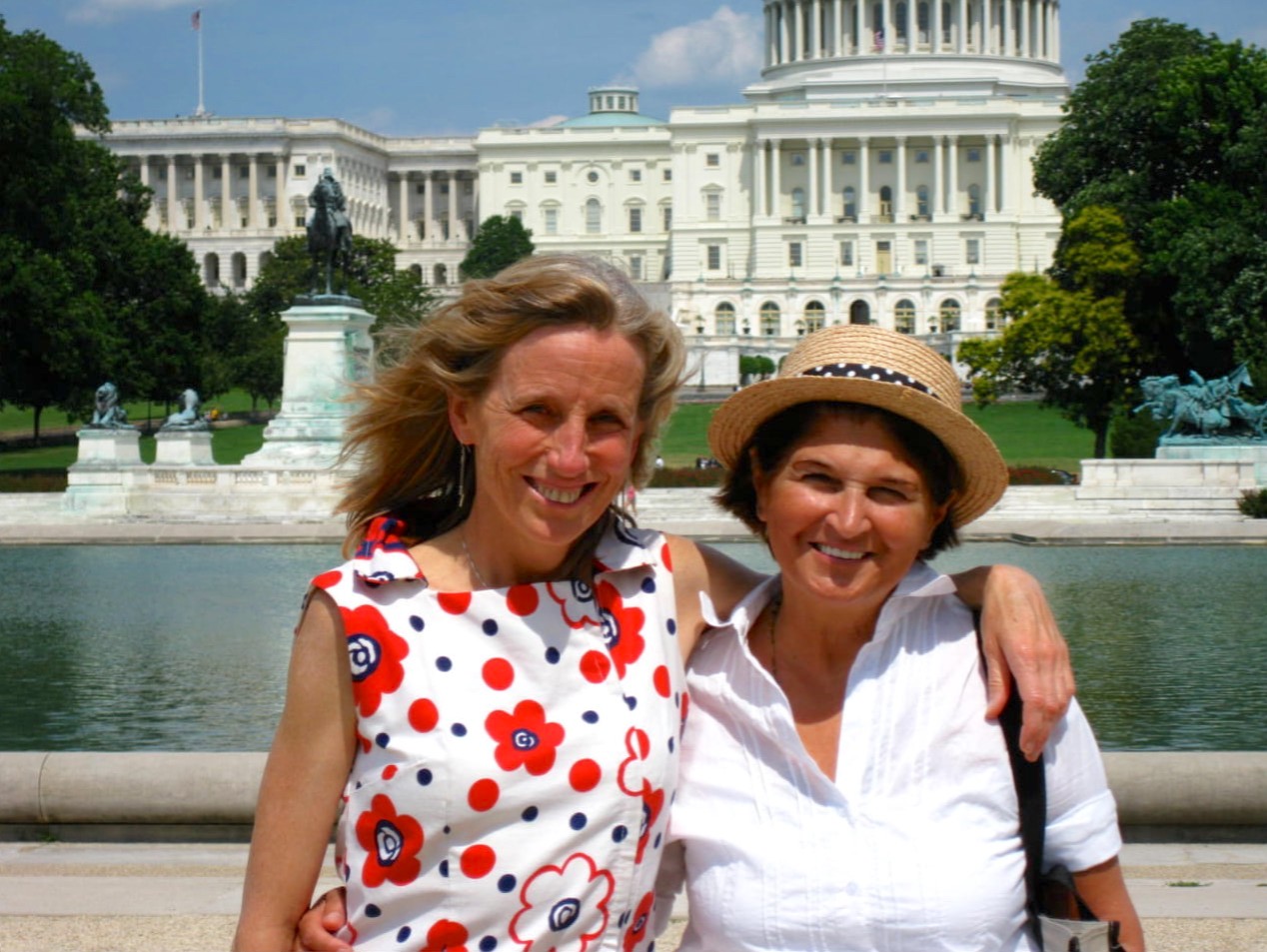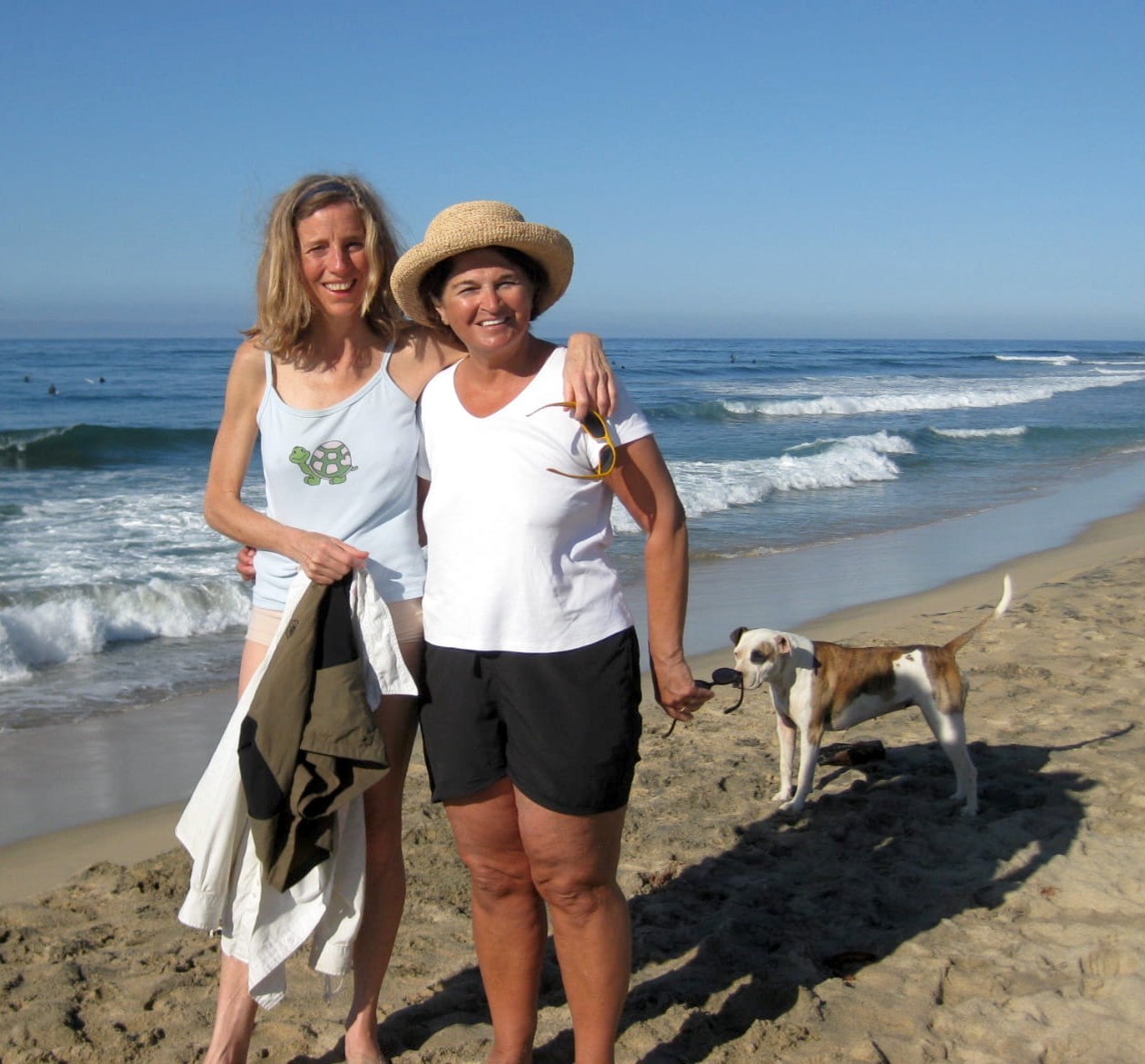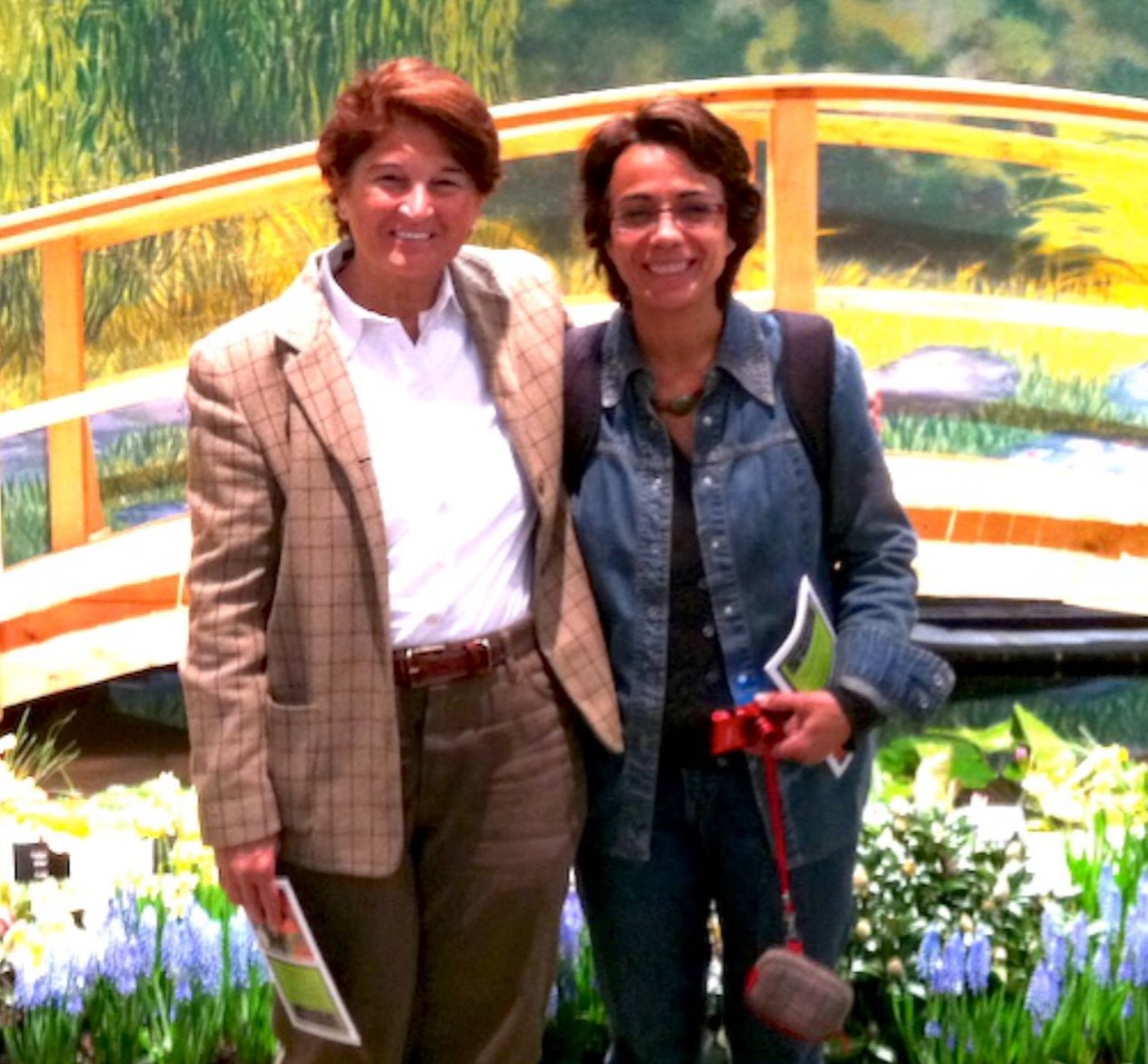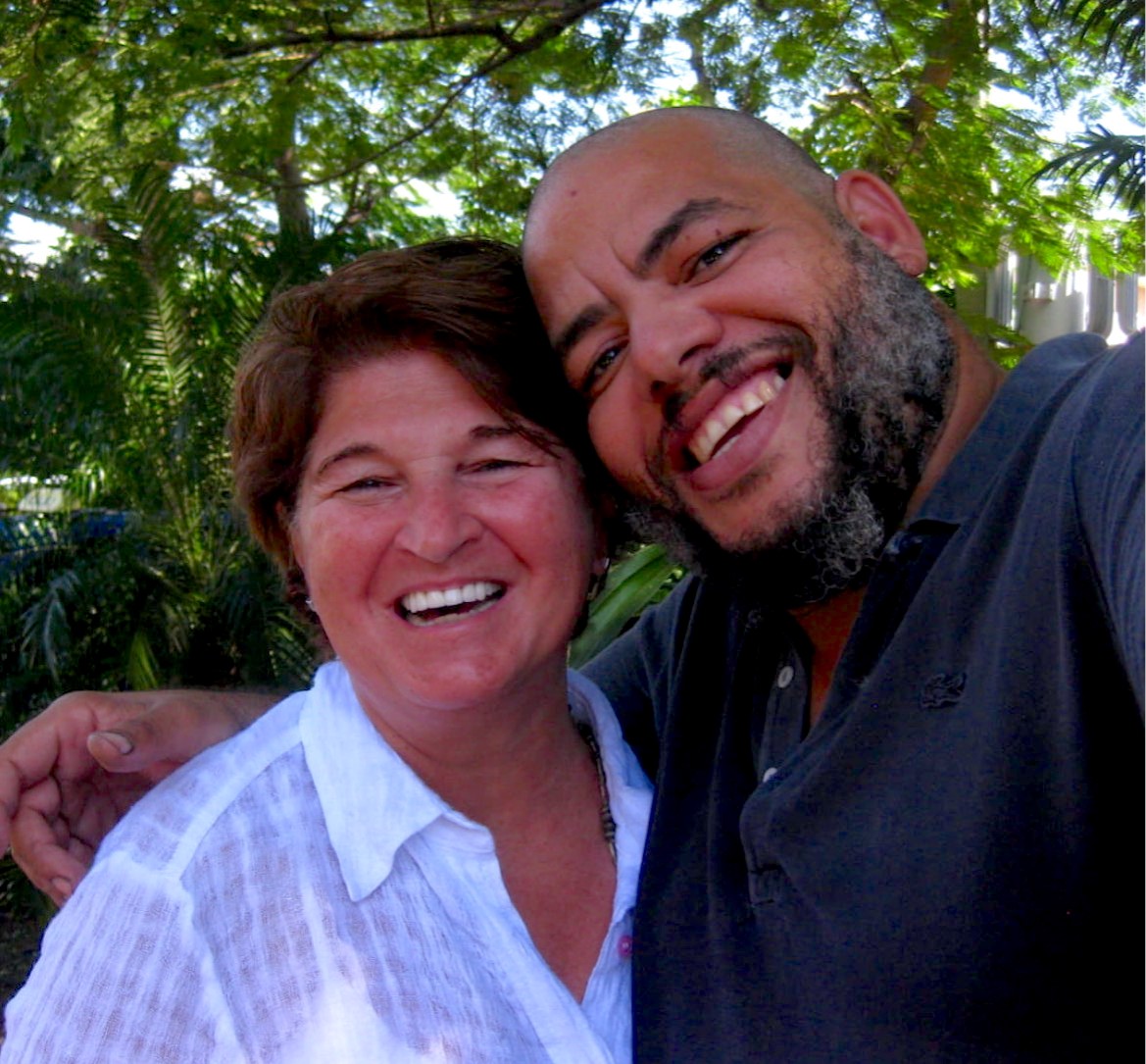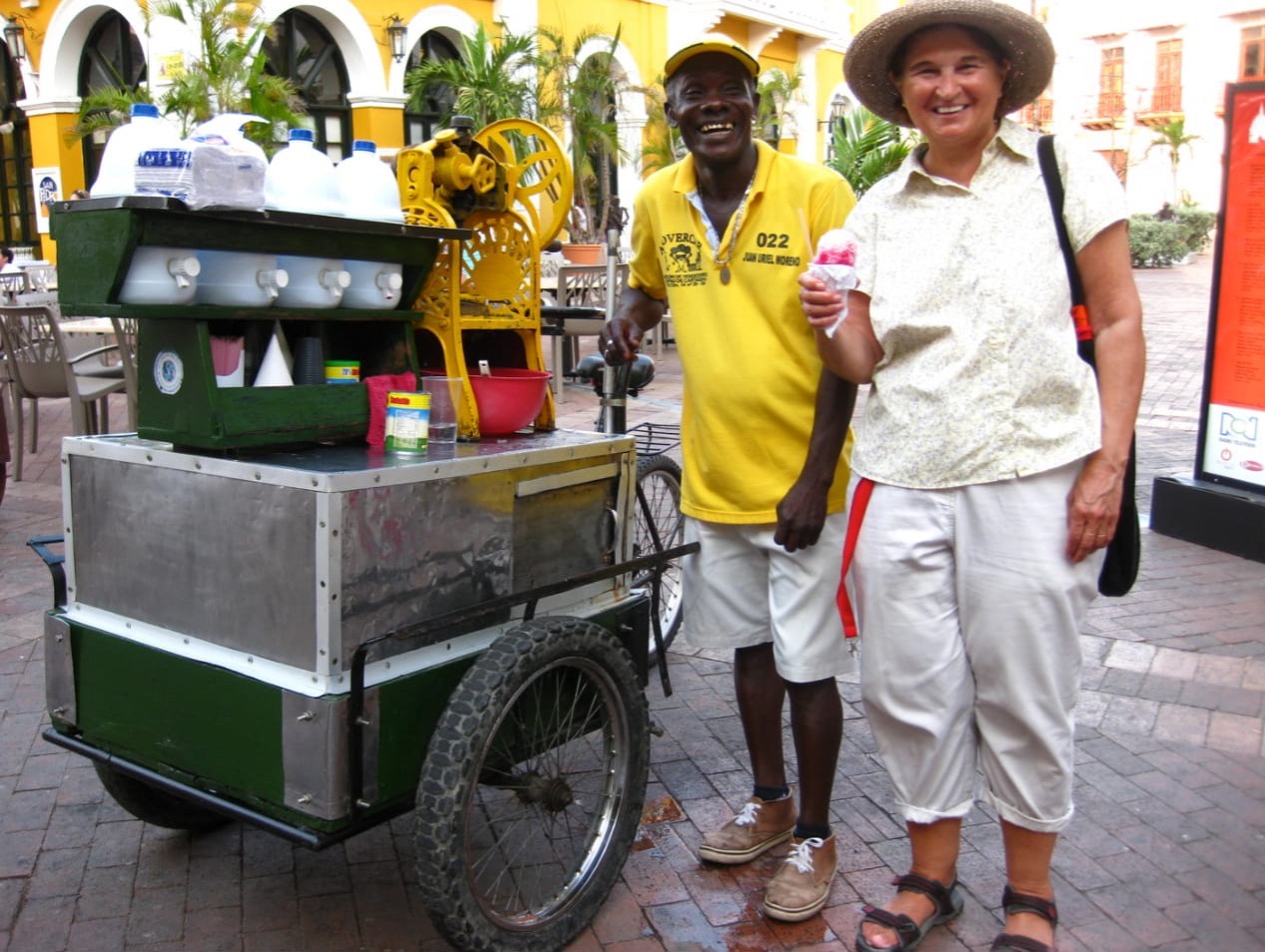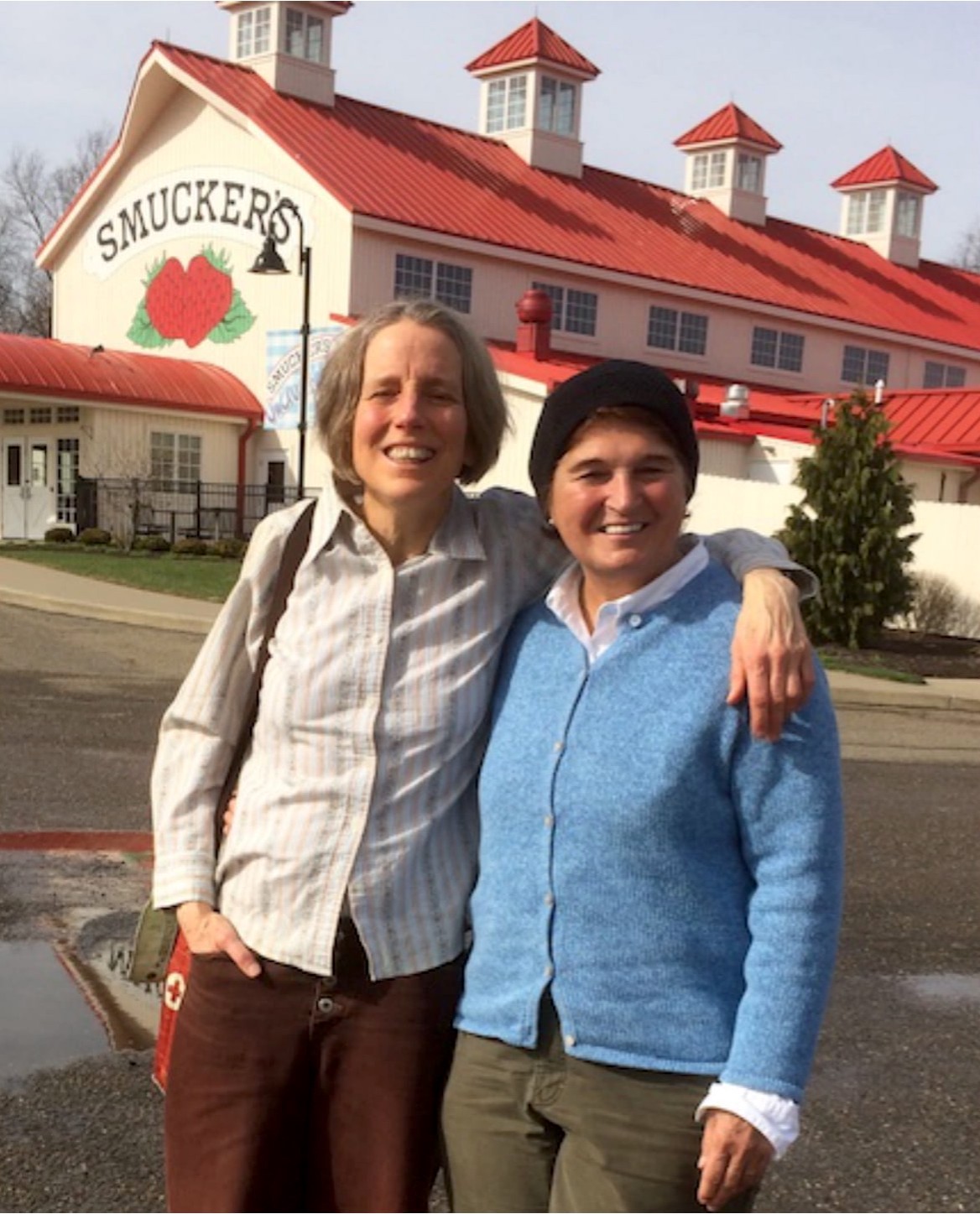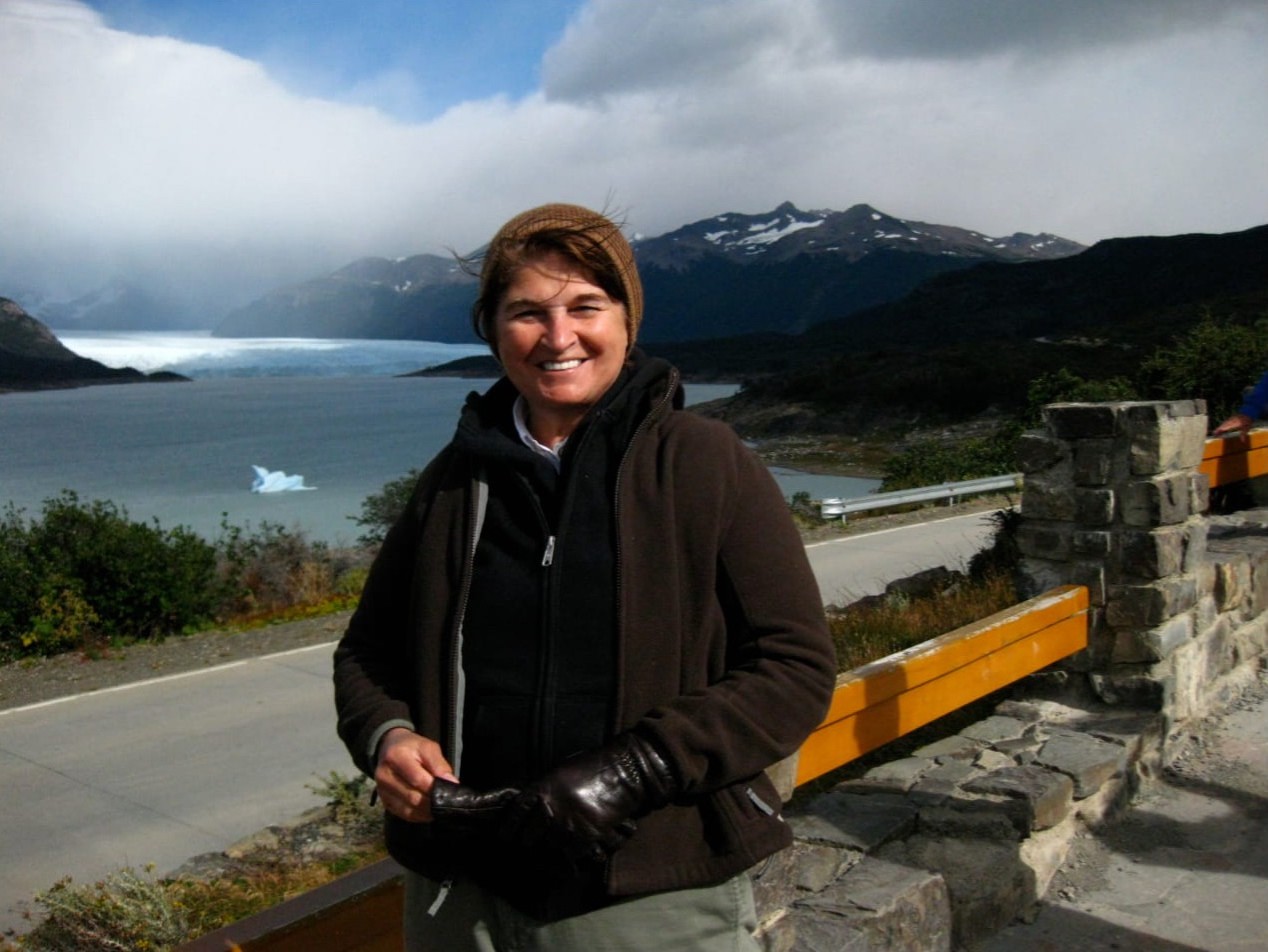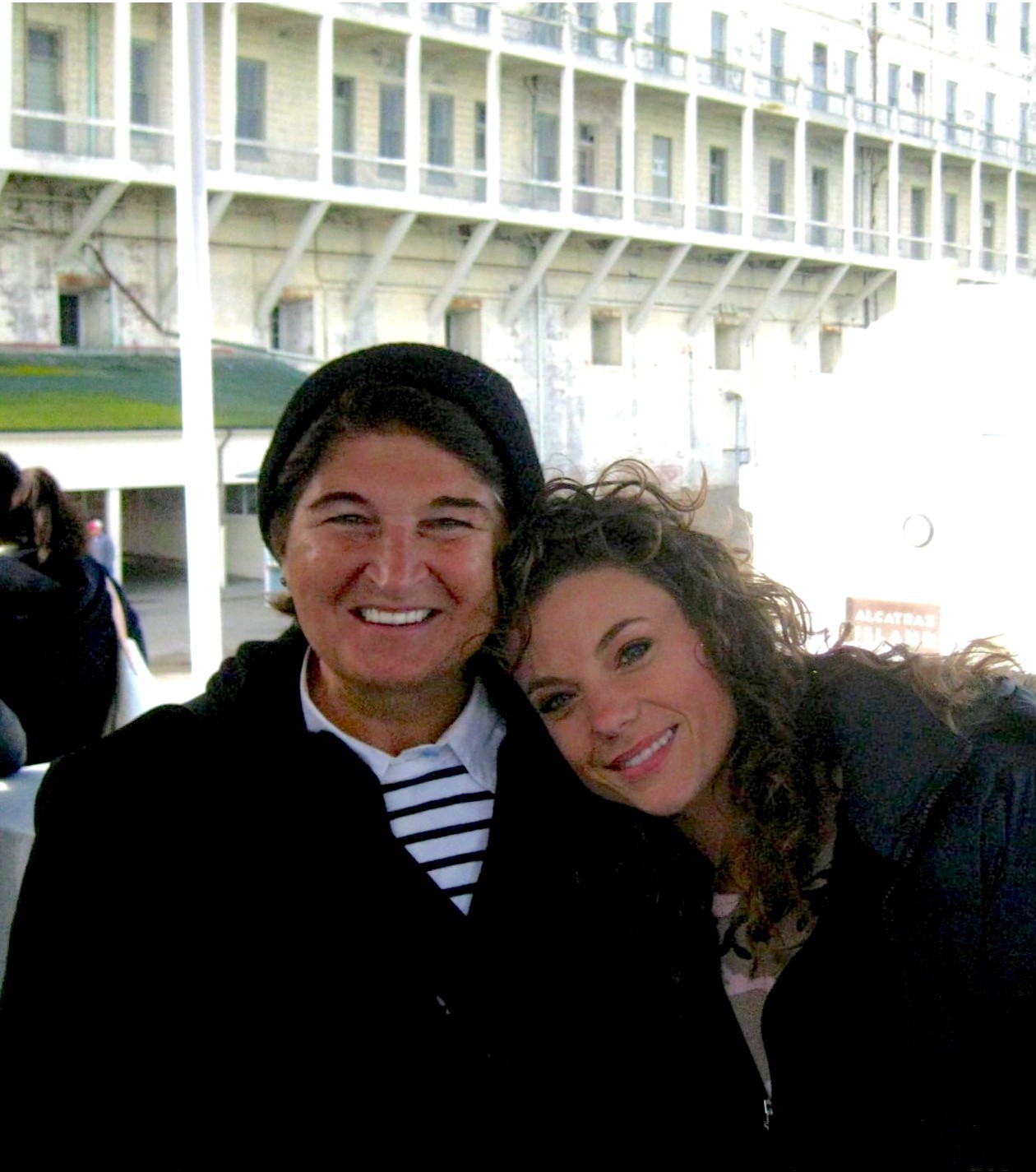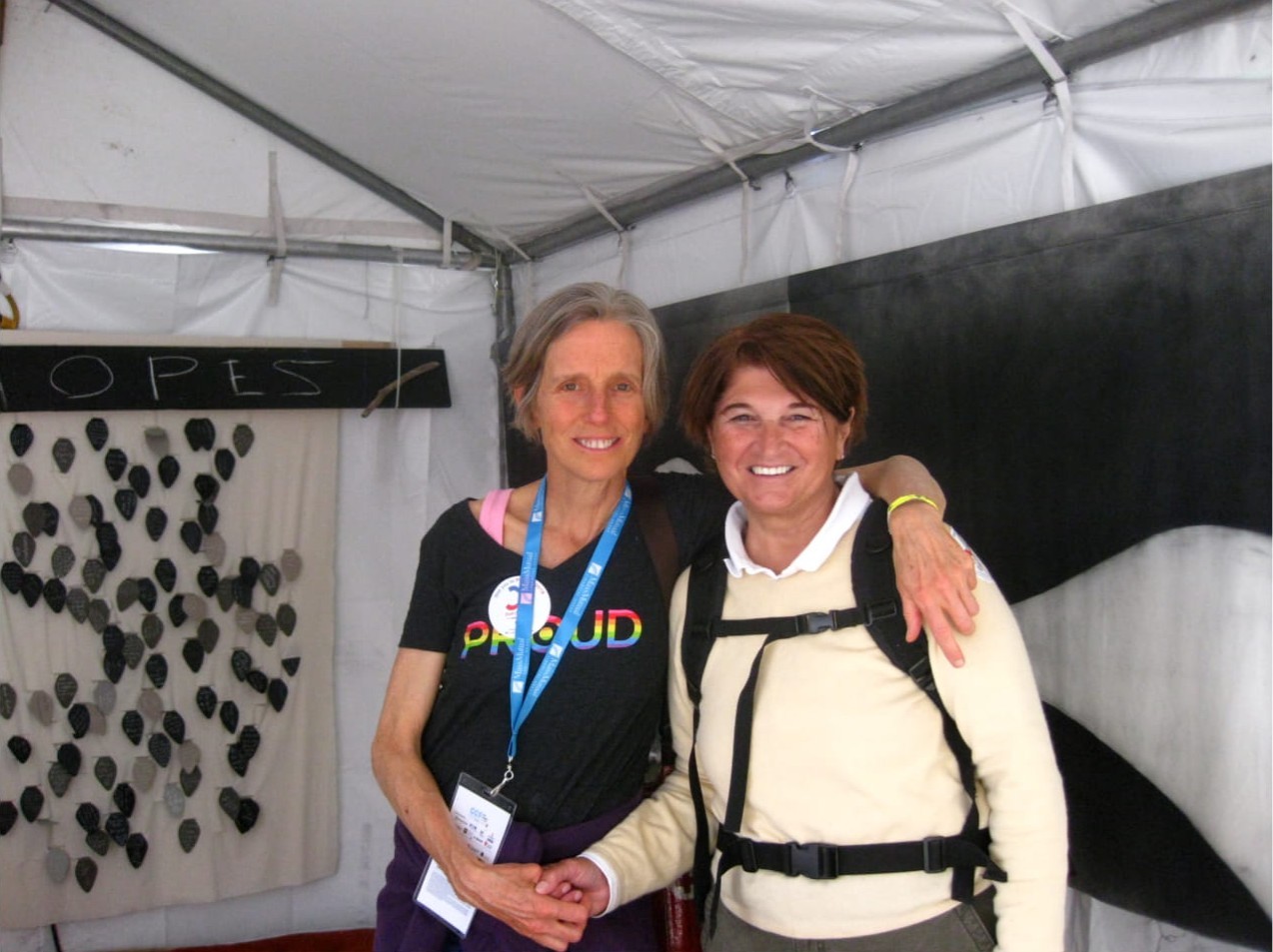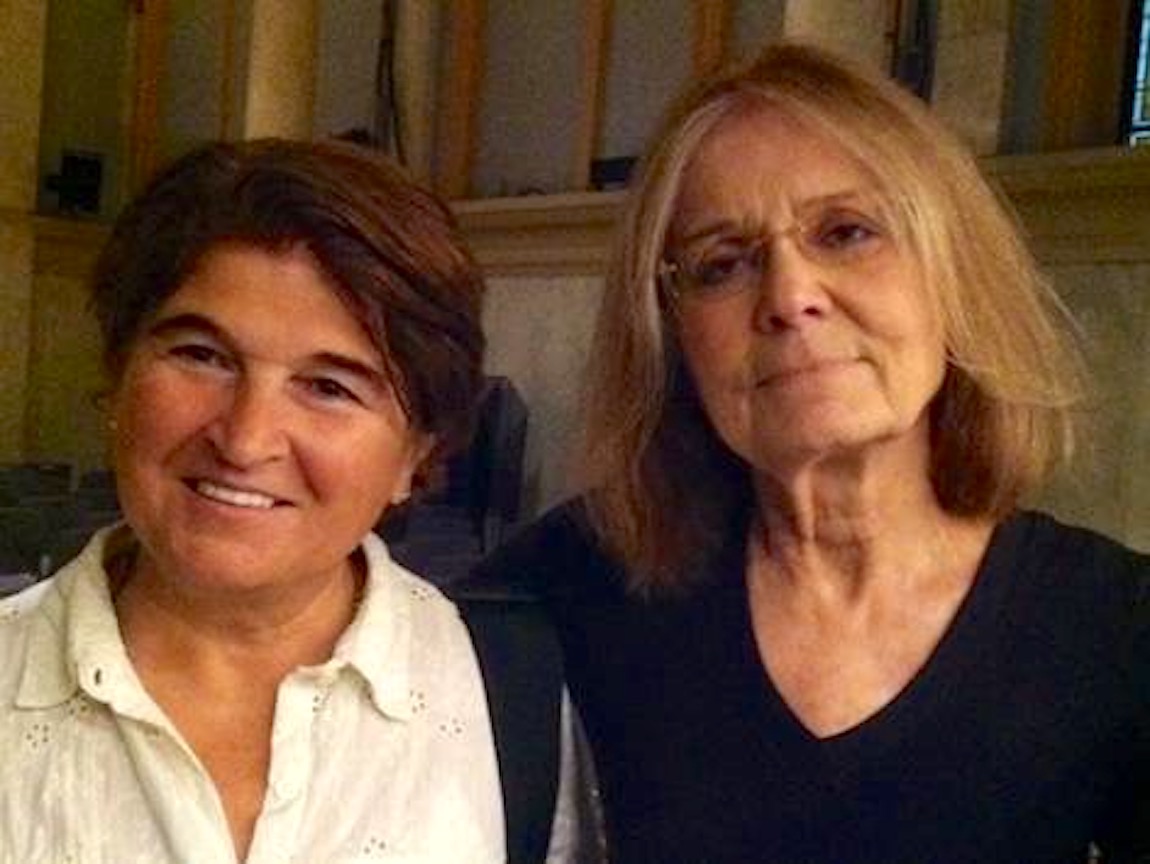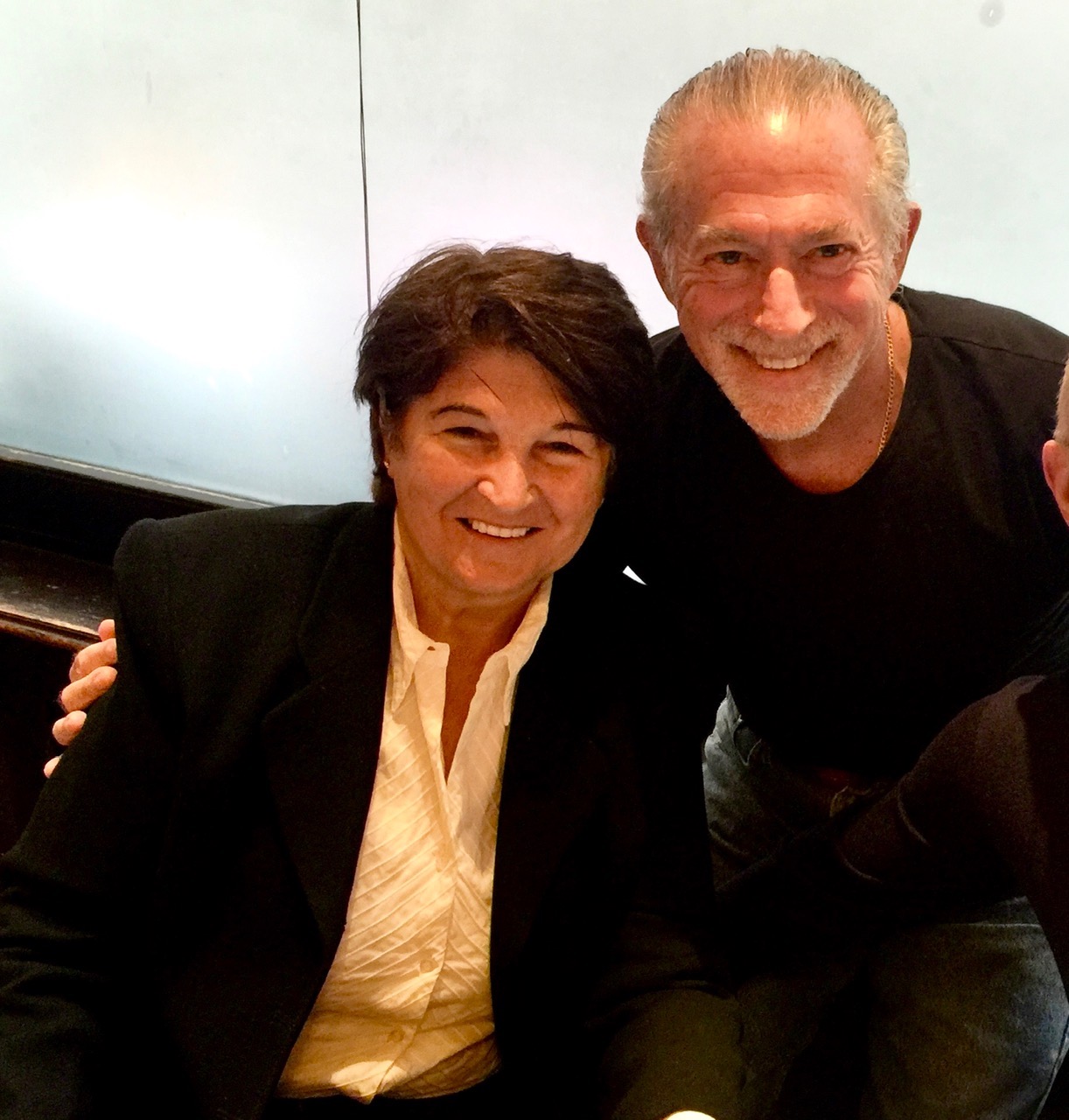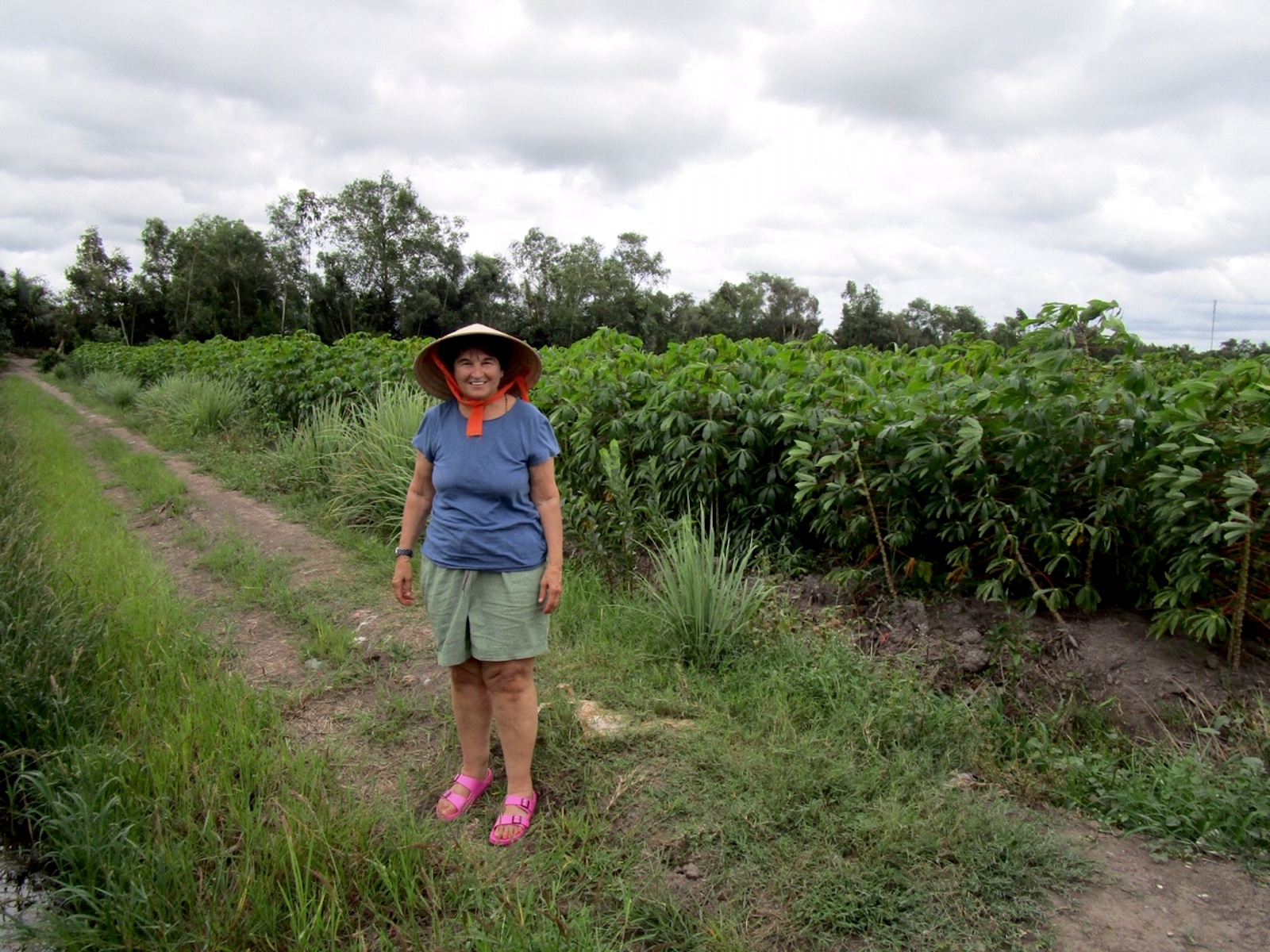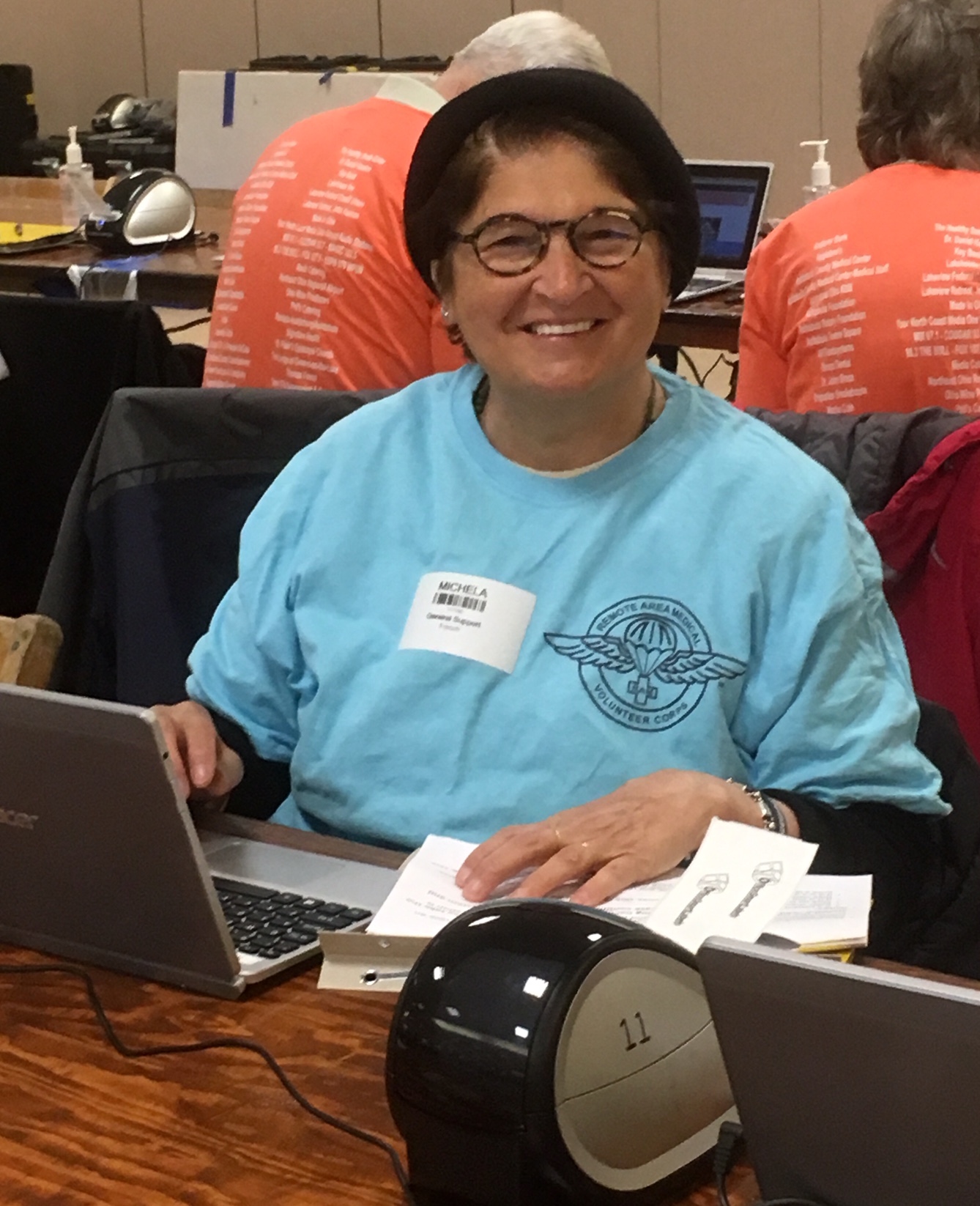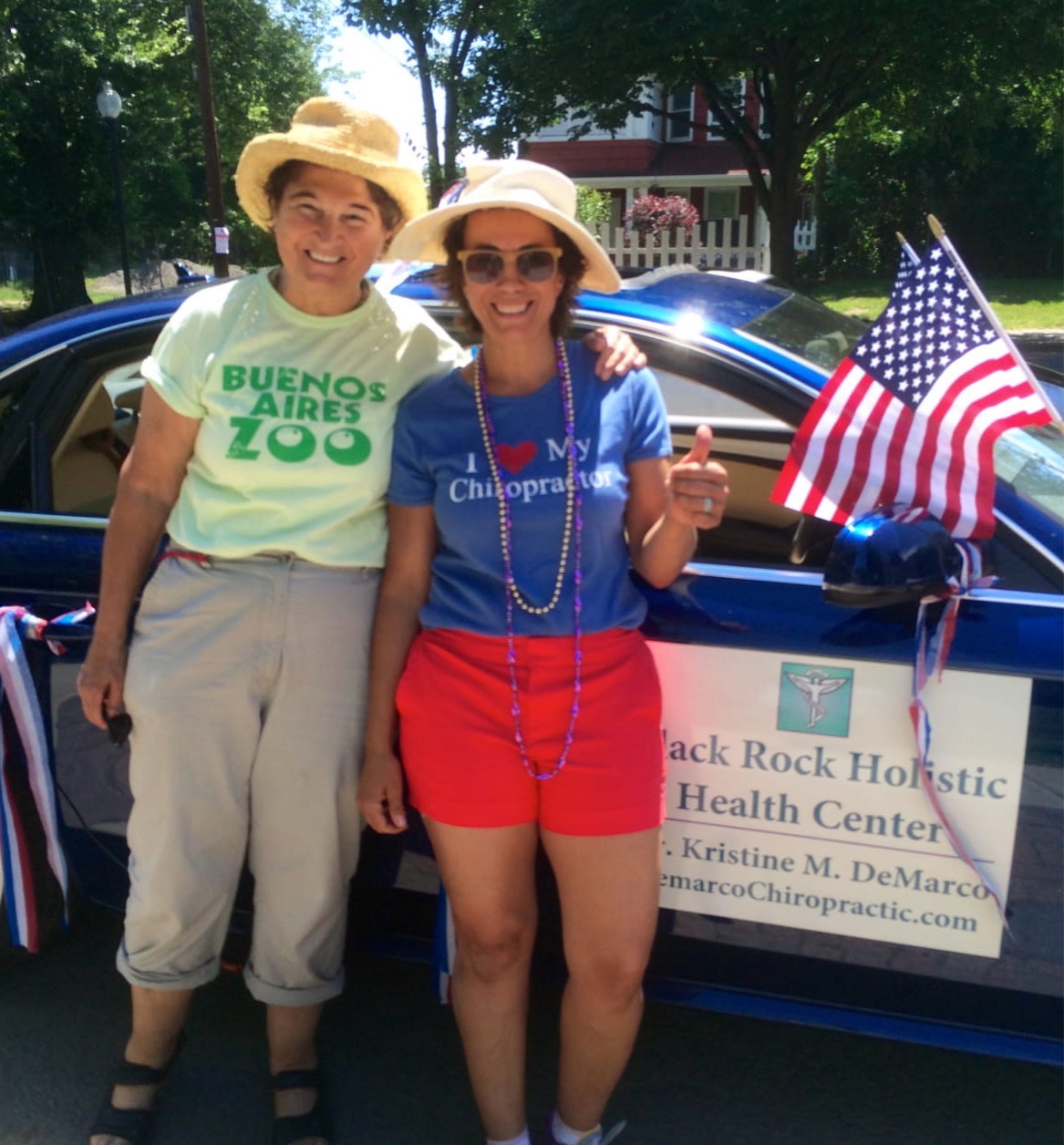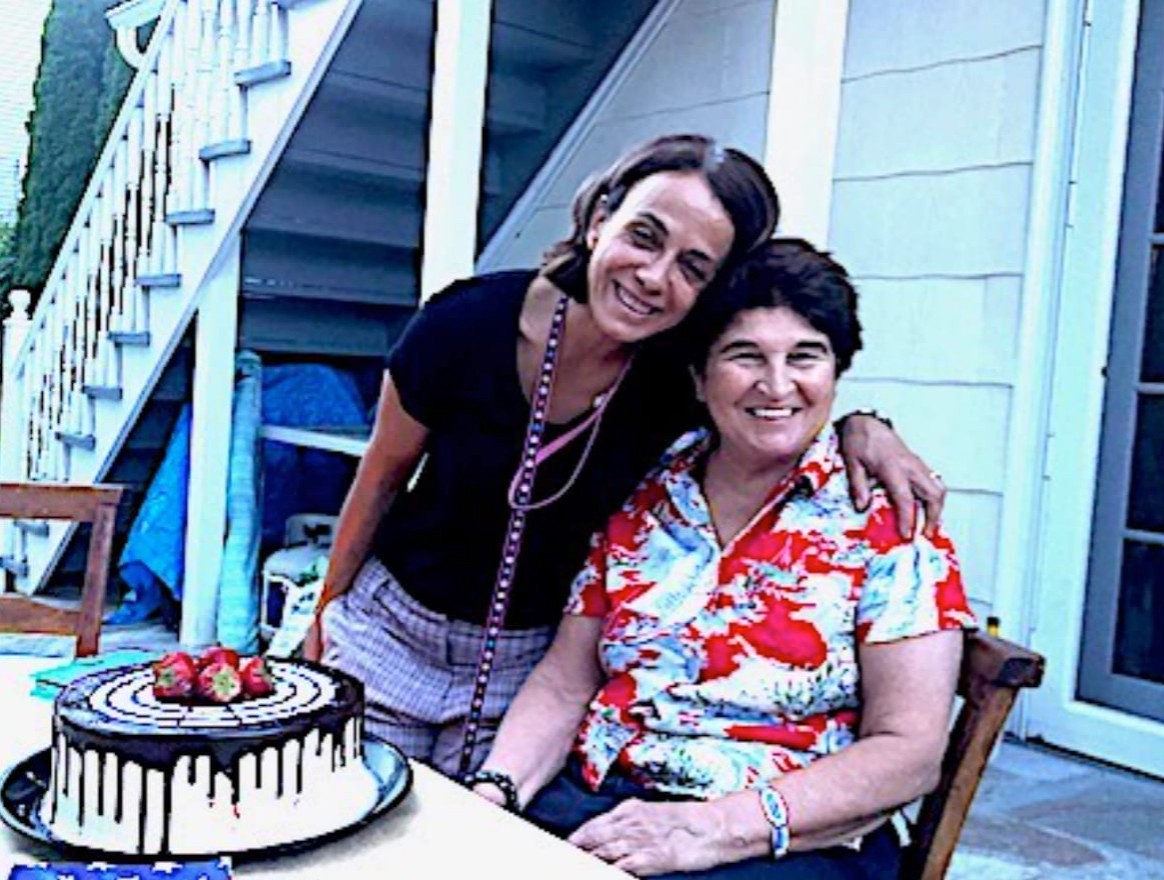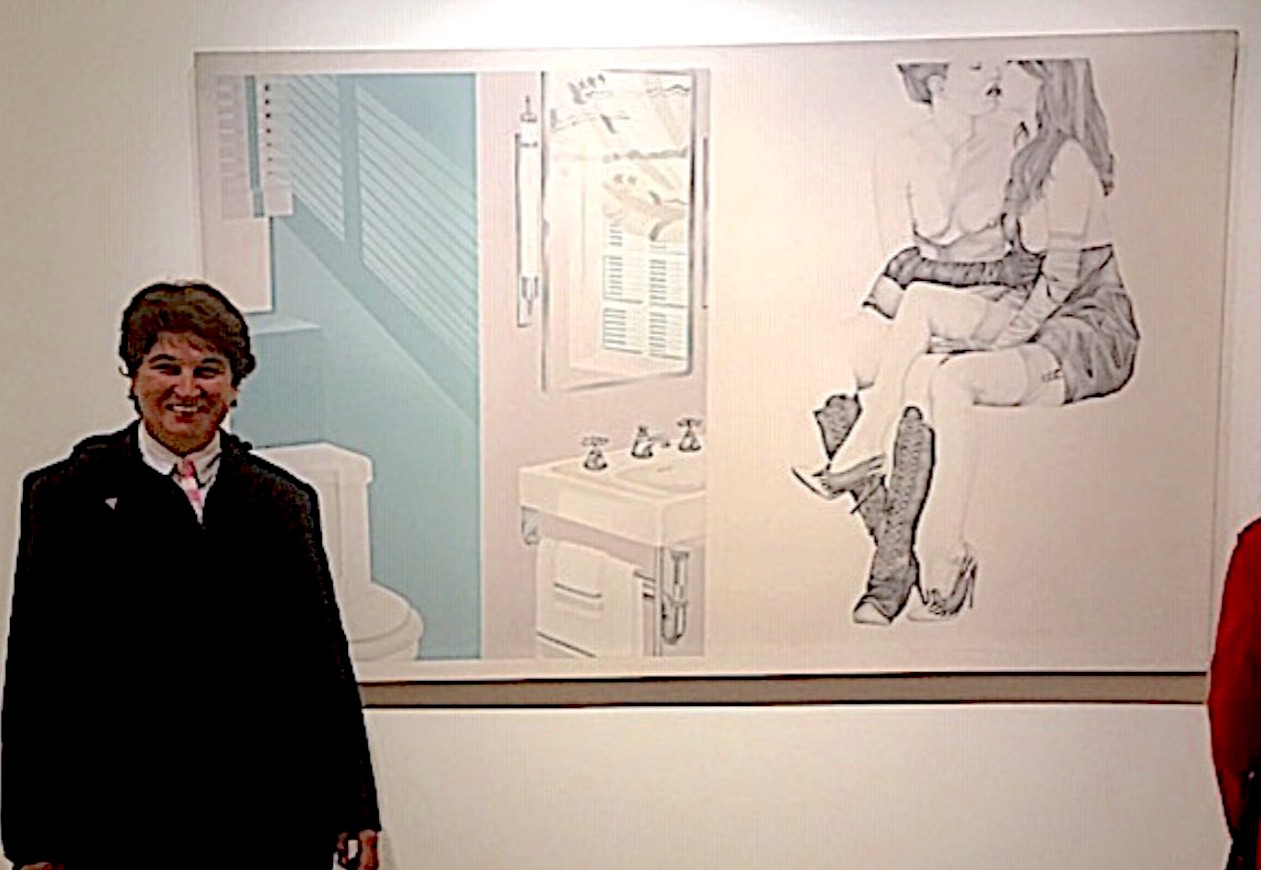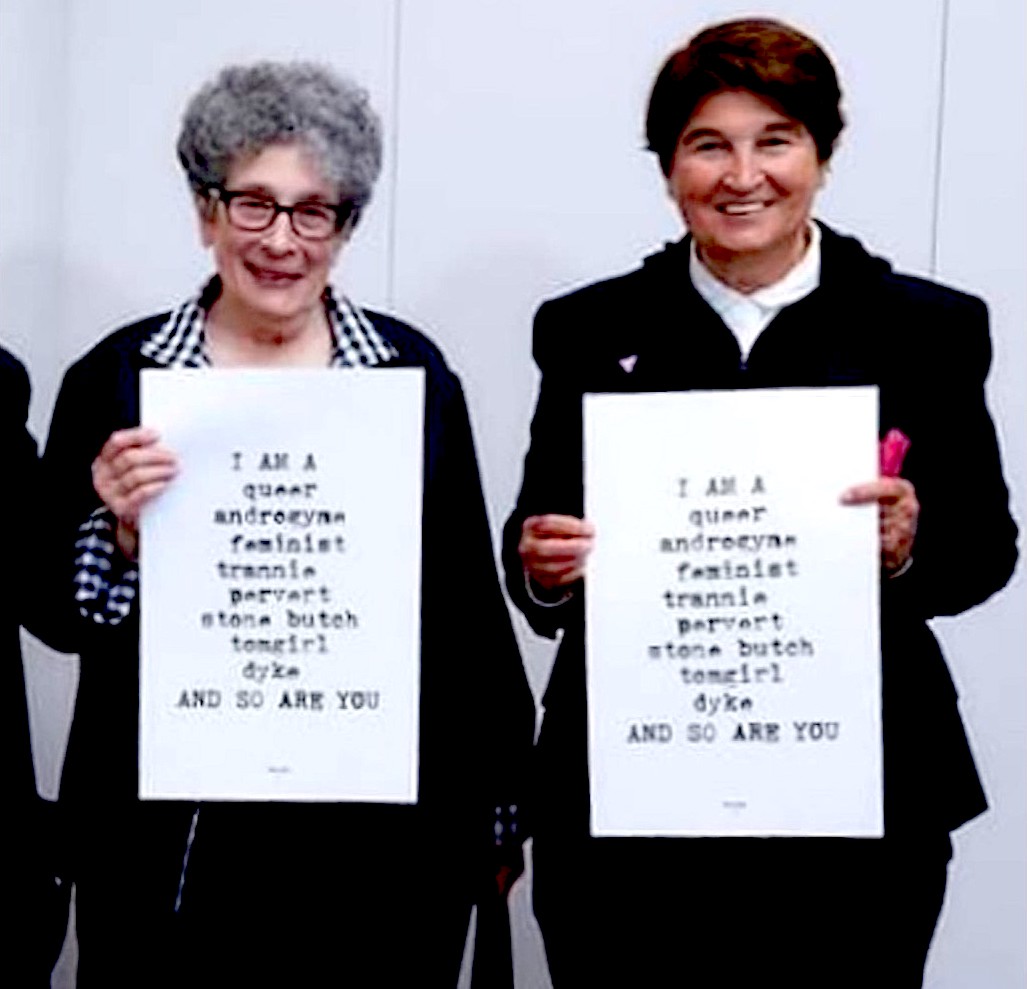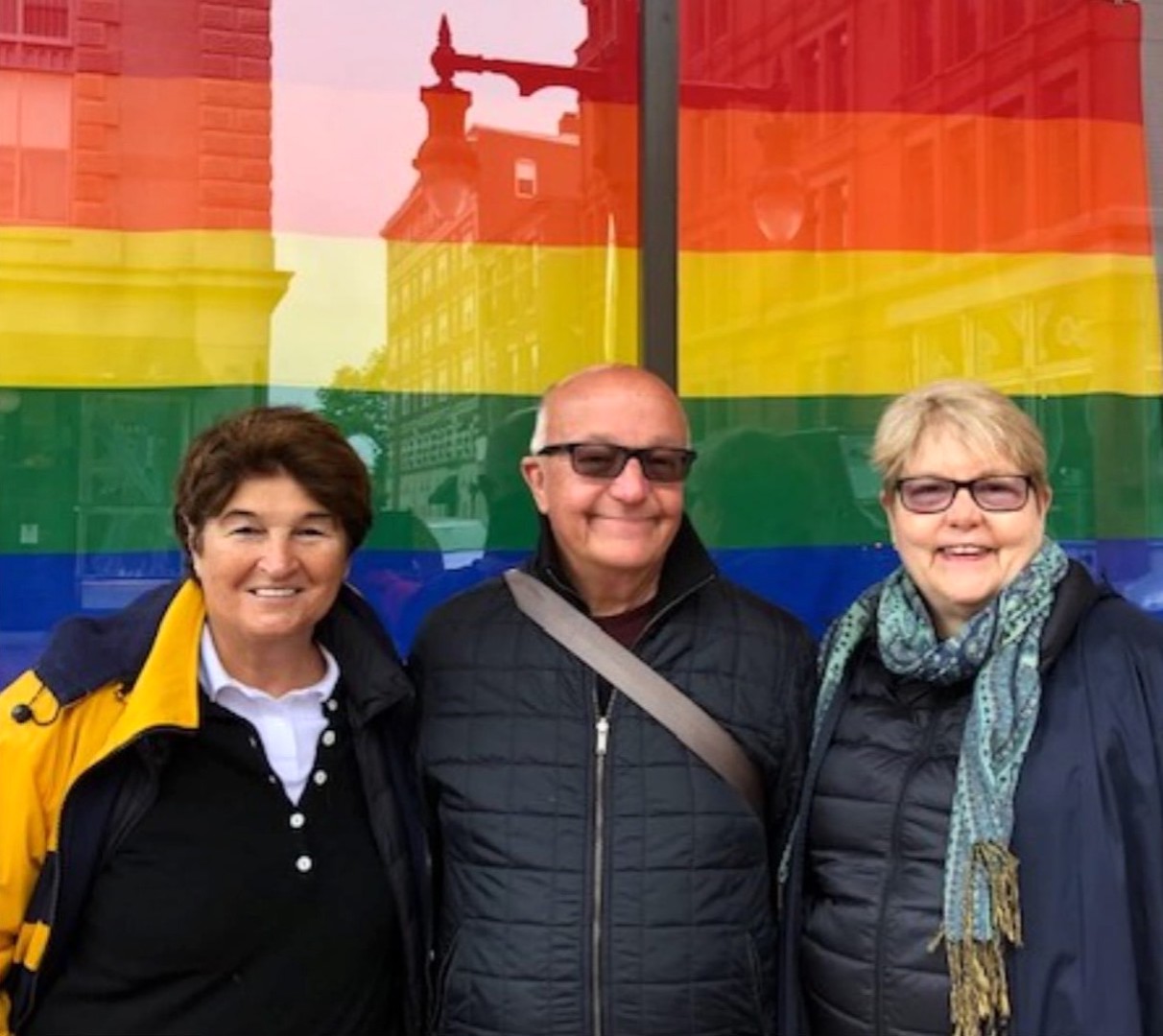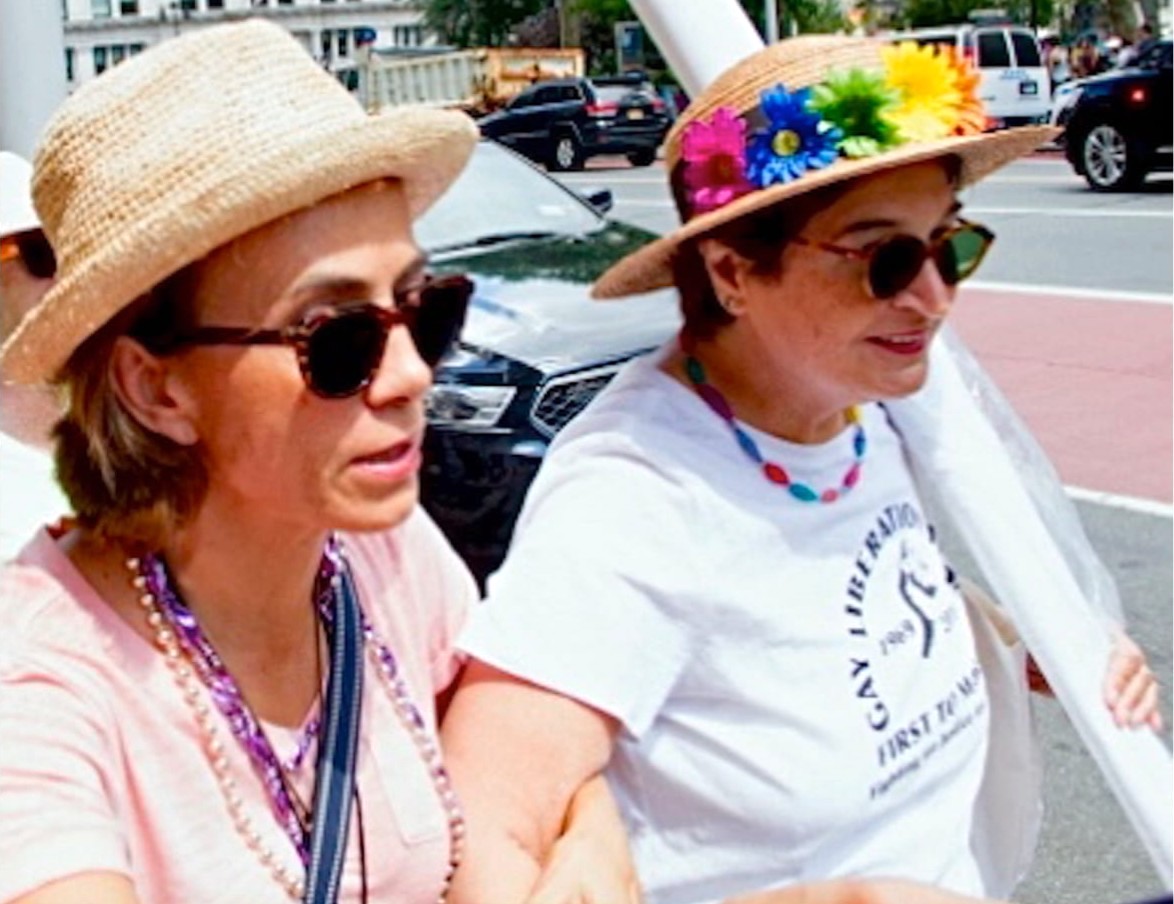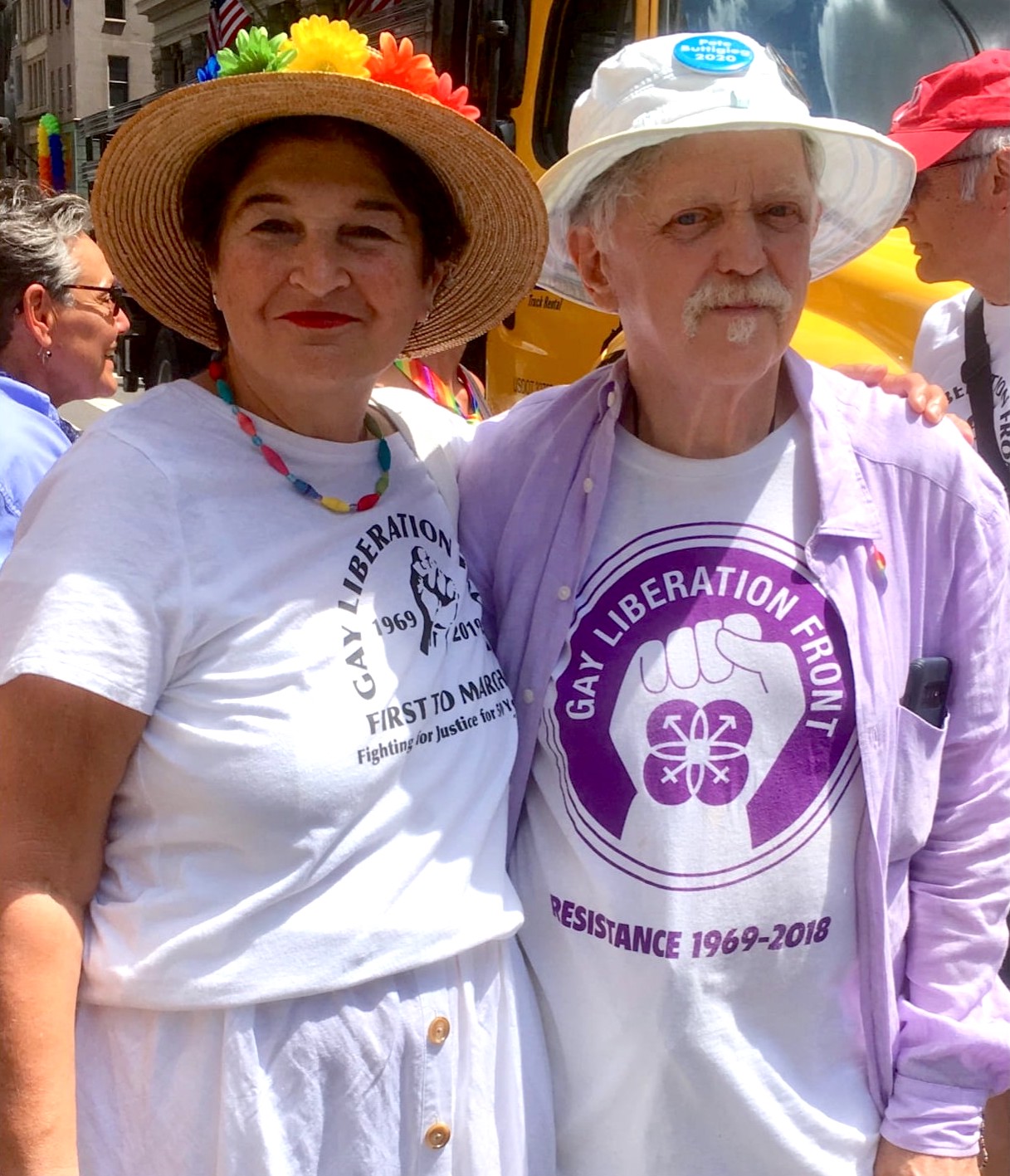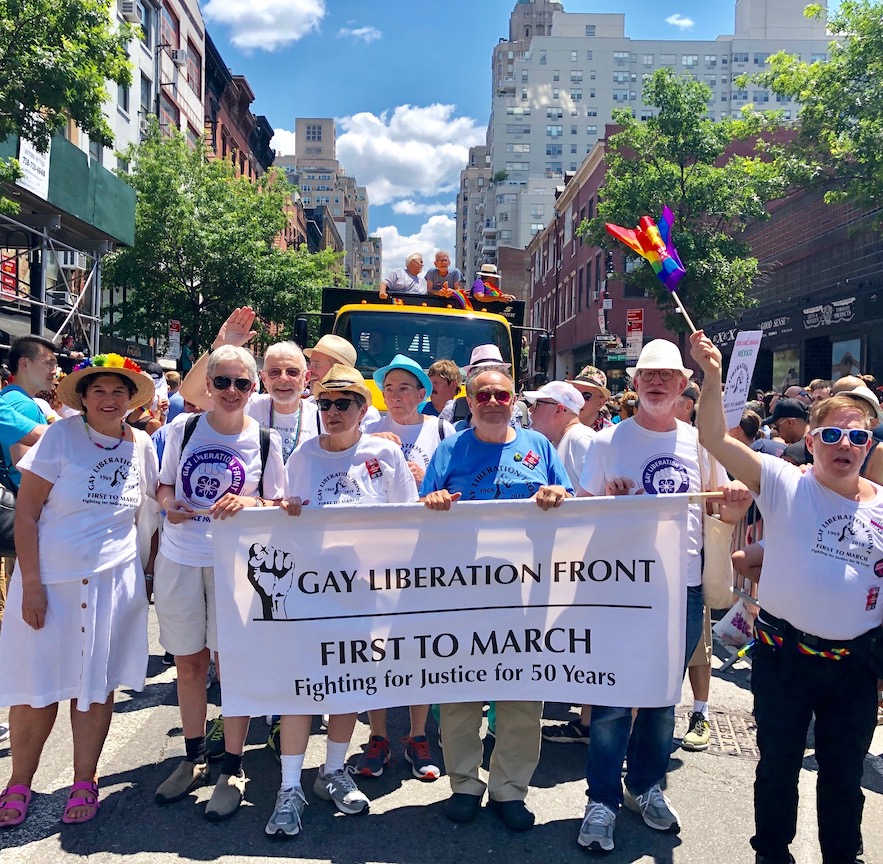Michela Griffo and her older brother Joe Griffo outside of their home, Ste. Adele, Quebec, Canada. Michela shares, “French children wore flowered wreaths on holidays. This could have been Bastille Day or Canada Day or maybe the Queen came to visit, as it is 1952 or about when this photo was taken. Canada was still part of the Crown and flying the Union Jack. “God Save the Queen” was replaced by “‘O Canada” and the Maple Leaf flag in 1987.” Photo courtesy of Michela Griffo.
Michela dressed in a “little butch number” around age 7, circa 1955. Photo courtesy of Michela Griffo.
Flavia Rando and Michela Griffo, 1970. Michela shares, “We were the two Italians the Radicalesbians asked to picket the Mafia-run lesbian bars. Because we both spoke the language, we were chosen to leaflet, yell in Italian, and run down the street.” Photo courtesy of Michela Griffo.
Sidney Abbott, Ellen Broidy, and Michela Griffo getting the ice blocks ready for the Gay Liberation Front women’s dance at Alternatew University, New York, NY, 1970. Photo courtesy of Michela Griffo.
Michela fixing up her loft in Chinatown, New York, NY, 1972. Photo courtesy of Michela Griffo.
Michela and her puppy Beans on Wainscott Beach, Long Island, NY, 1975. Photo courtesy of Michela Griffo.
Michela in her studio, Chinatown, New York, NY, 1975. Photo courtesy of Michela Griffo.
Michela on a horse, which is her “favorite place to be”, in Klondyke, AZ, 1988. Photo courtesy of Michela Griffo.
Mary O’Connor and Michela Griffo on their first real date, Washington, DC, 2010. Photo courtesy of Michela Griffo.
Michela Griffo and Mary O’Connor (an architect who then was her partner), Pescadera, Baja, 2011. Photo courtesy of Michela Griffo.
Michela Griffo with Dr. Kristine DeMarco, her former partner from 1994-2004, Boston, MA, 2012. Photo courtesy of Michela Griffo.
Michela Girffo and Cuba’s most famous artist KCHO in Havana, Cuba, 2013. Photo courtesy of Michela Griffo.
Michela in Cartagena, Colombia, 2013. Photo courtesy of Michela Griffo.
Michela Griffo and her partner Mary O’Connor during a surprise trip to the J.M. Smucker Company in Orrville, OH, 2013. Michela shares that her “favorite food in the entire world” is Smuckers Peanut Butter. Photo courtesy of Michela Griffo.
Michela in Patagonia, Argentina, February 2014. She shares, “This is my favorite picture of myself only because I am always happiest in Argentina. This is Patagonia overlooking Perito Merino Glacier, the only glacier that is not melting.” Photo courtesy of Michela Griffo.
Michela Griffo and her “forever best friend” Grace Paglen at Alcatraz, San Francisco Bay, CA, November 2014. Michela shares, “We went to the Ai Weiwei show.” Photo courtesy of Michela Griffo.
Mary O’Connor and Michela Griffo at the Gay Games in Cleveland and Akron, OH, 2014. Michela shares, “Mary won a gold medal for the U.S.A. in the One Mile Open Water Swim. We are standing in the Peace/Meditation tent which Mary designed for the Games.” Photo courtesy of Michela Griffo.
Michela Griffo and Gloria Steinem gathering for Sidney Abbott’s Memorial Service, Judson Memorial Church in Washington Square, New York, NY, June 2015. Photo courtesy of Michela Griffo.
Michela and her “should have been husband” Dr. Peter Greenberg at the Balthazar Restaurant, June 2016. Michela shares, “He was my high school sweetheart. In June of 1969 we were living together on Horatio Street in the West Village and planned to be married when I graduated from Pratt Institute and he finished his residency in Psychiatry. Then his parents discovered that I was Catholic and that ended the engagement. Twenty five years later we met again and were both happily gay.” Photo courtesy of Michela Griffo.
Michela at the Mekong River Delta, Vietnam, 2018. Photo courtesy of Michela Griffo.
Michela as a social worker, on the job at Remote Area Medical, Ashtabula, OH, April 2018. She shares, “I am at my desk ready to meet patients at 5:30 AM. My day starts at 6:00AM and ends when the last person has been seen. We go to the poorest parts of the United States.” Photo courtesy of Michela Griffo.
Michela Griffo and Dr. Kristine DeMarco on Black Rock Day, Black Rock, CT, 2018. They both currently live in the town. Photo courtesy of Michela Griffo.
Michela Griffo and Dr. Kristine DeMarco on Michela’s birthday, 2019. Photo courtesy of Michela Griffo.
Michela during the opening night for the “Art After Stonewall” exhibit in the Leslie Lohman Museum of Art, New York, NY, April 2019. Photo courtesy of Michela Griffo.
Flavia Rando and Michela Griffo as co-hosts for the “Fierce Pussy” exhibit in the Leslie Lohman Museum of Art, New York, NY, 2019. Photo courtesy of Michela Griffo.
Michela Griffo, John Knoebel, and Charlotte Bunch at one of their cruise stops, Portland, ME, June 2019. These “three icons of Gay Pride” were greeted with the pride flag after getting off their cruise. Photo courtesy of Michela Griffo.
Michela Griffo and Dr. Kristine DeMarco at the Stonewall 50 / WorldPride Parade, New York, New York, June 2019. Michela shares, “This is my favorite picture of Kris and I. She is walking me to the area where the Grand Marshals line up. I am holding the Gay Liberation Front banner which I designed. She was four years old in 1969; I was 19.” Photo courtesy of Michela Griffo.
Michela Griffo and Jim Fourratt at the Gay Pride March, June 2019. Michela shares, “I’ve known Jim since I was 19.” Photo courtesy of Michela Griffo.
Michela Griffo and the Gay Liberation Front as Grand Marshals during the Stonewall 50 / WorldPride Parade in New York, NY, June 2019. This was the 50th anniversary of the GLF and the Stonewall Rebellion that inspired the organization. Photo courtesy of Michela Griffo.
Michela Griffo was born in 1949 in Rochester, New York, into a large, unruly family of Irish, Germans, Italians—what Michela calls the United Nations of families. Her family drank a lot, and by the time she was 11, Michela was hiding a flask of vodka in her convent school uniform. Michela left home at 16, graduated from the University of Michigan, and earned her master’s degree in photography from the Pratt institute in New York by the time she was 23. In June 1969, her pending marriage to an Orthodox Jewish man was nixed over religious differences. Months later (after a quick detour to Woodstock), Michela fell in love with an Eileen Ford model named Agneta Freiberg. Friends told her that if she pursued this path, her life would be ruined. It made no sense to her—she was the same person she had always been! Spotting an ad in the Village Voice for a group called the Gay Liberation Front, which had sprung up after the Stonewall riots, Michela went down and joined. She loved the group’s focus on social justice and intersectionality. She also participated in the Lavender Menace’s uproarious action to interrupt the NOW national convention. “I was an outlaw then,” Michela says, “and I’m an outlaw now.”
Michela’s first piece of political art was a poster for the first Pride march in June 1970. It read, “I am your worst fear, I am your best fantasy.” It enraged her that the very people who fetishized lesbians were terrified of their actual existence. Michela wasn’t going to sit on the sidelines producing abstract paintings. “I wanted to tell the truth of what I saw in our society.” Over the course of the 1970s and early 1980s, Michela’s art career flourished, even as she descended into a deep well of alcoholism. Over time, she found her sobriety, earned a master’s degree in social work at New York University, worked for many years in the art department at Colgate Palmolive, and continued to practice her art. She has also been deeply involved with Remote Area Medical, which provides essential medical services to the poorest communities in the U.S.
Michela holds strong opinions, and she is not shy about sharing them. She rejects the word queer. She states that she is not transphobic, but refuses to recognize transgender women as women. Michela’s opinions are controversial and, to some people, offensive. She’s refuses to back down, even when she feels like a stranger to the community she embraced more than 50 years ago.
Recently, a woman asked to photograph Michela for a project she was doing. When Michela agreed, the woman asked where she would you like to be photographed. “In the Museum of Natural History, standing in front of a dinosaur,” Michela replied, “because that’s how I feel.”

